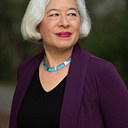Navigating the Israel-Hamas Conflict

Up to this point, I haven’t posted anything about the Israel-Hamas conflict. There’s a lot of opinion out there; does anyone need my hot take? I thought I could just stay quiet, breathe into the heartbreak, post pictures of sunsets and friendship bracelets, stay out of the fray.
It turns out, though, if your name is Dr. Israel, and you wrote a book about communicating across political difference, people want to know what you have to say about conflict in the Middle East. As I witness conflict about the conflict spiraling up on college campuses and social media, it seems possible that my work on navigating division might be helpful. Recognizing that I want to say different things to people depending on their relationship to the conflict, here’s what I can offer…
If you live in Israel or Gaza, I hope you can feel the love and prayers directed your way from around the world. Thank you for sharing your experiences and perspectives in the midst of fighting for safety and survival. I find it helpful to gain insight into what you’re going through and learn what you need.
If you have loved ones in Israel and Gaza, hold your people close to your heart and take care of yourself. It’s scary when those you care about are far away and in peril. If you know people with friends and family in the line of fire and suffering enormous losses, check in on them and offer support.
If your heritage is Palestinian or Jewish, the conflict may make you feel acutely vulnerable. Attend to your security and, as you’re able, notice how your feelings connect you to so many others who are experiencing fear and helplessness on multiple sides of this conflict and beyond.
If you have meaningful content to share that will help to inform others, contextualize what’s happening, or direct people to resources, please do so in a way that refrains from stoking the flames of vitriol toward people who share different information or analysis.
What about the rest of us? Those looking on, making sense, taking stands, feeling distressed, struggling to know what to do, watching the heat getting turned up. Perhaps you are advocating by amplifying messages or boosting visibility, hoping to influence public opinion or policy makers. Maybe you’re looking for ways to process the flood of information and opinion. Whether you’re trying to form an opinion or shape others’ opinions, it turns out, much of my guidance on navigating political polarization is applicable to this situation.
If you want to have meaningful exchanges with those who hold differing views, social media is not the place to have these conversations. As research (and likely your own experience) can attest, responding with an opposing view on social media is more apt to intensify conflict rather than open minds. The best way to communicate across difference is face-to-face, not Facebook-to-Facebook.
If you do choose to share your views with others via human interaction, share stories rather than stats and slogans. Whether you are trying to be persuasive or simply express yourself, elaborating on the path that brought you to your perspective will be more effective than reiterating facts or analysis.
Keep in mind that we all have biases that affect how we view people who have a different perspective from our own. Our minds tend to distort our perception of people with whom we disagree such that we see them as uninformed, irrational, and hateful. This is a human tendency that leads us to discount alternative views and feel animosity toward the people who hold them. Try to hold the possibility that people whose perspectives are different from yours are coming from a place of caring, just like you are.
Ideally, recognizing these biases will motivate us to cultivate curiosity rather than contempt. This time of crisis presents us with an opportunity for learning and growth. There is ample content circulating about the history of the region, prior conflicts, and the actions of political leaders. Moreover, we are faced with a rich repository of human experience and perspective we may not have previously encountered or grasped. What new understanding can we gain?
This is a challenging time when people’s lives are in peril. Animosity among bystanders does not protect those on the front lines of conflict. Perhaps we can set aside hate and embrace this opportunity to broaden our minds and open our hearts.
Tania Israel is a Professor of Counseling Psychology at the University of California, Santa Barbara and award-winning author of Beyond Your Bubble: How to Connect Across the Political Divide, Skills and Strategies for Conversations That Work (APA, 2020).
Photo by Prateek Gautam on Unsplash
